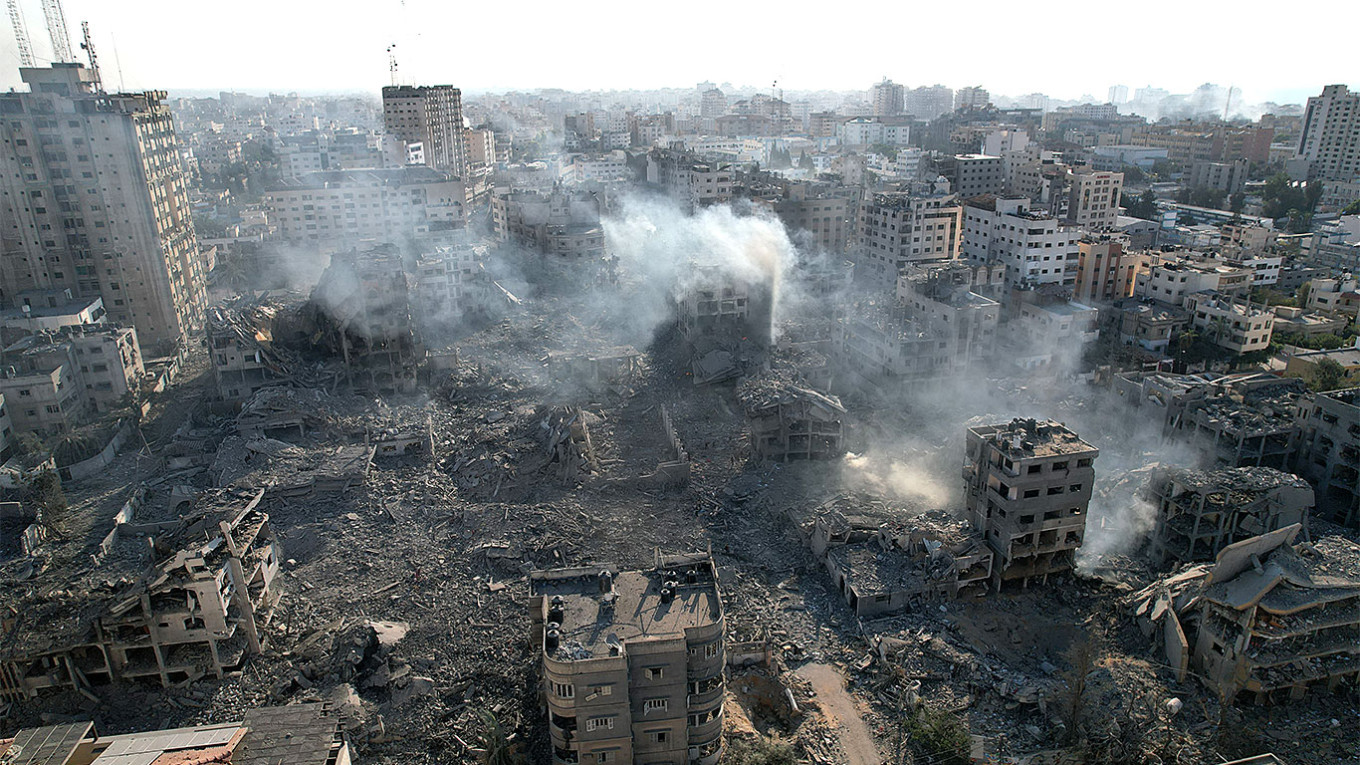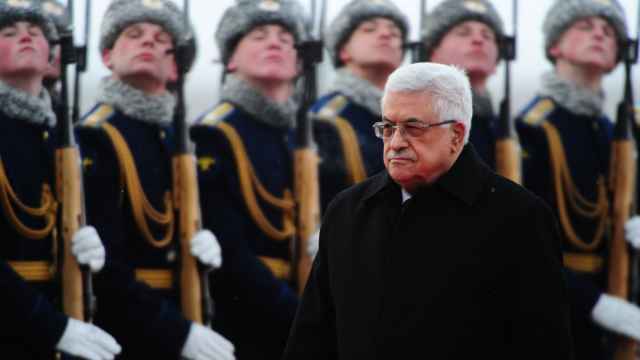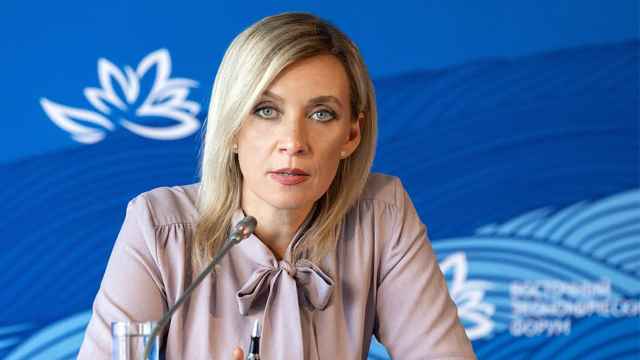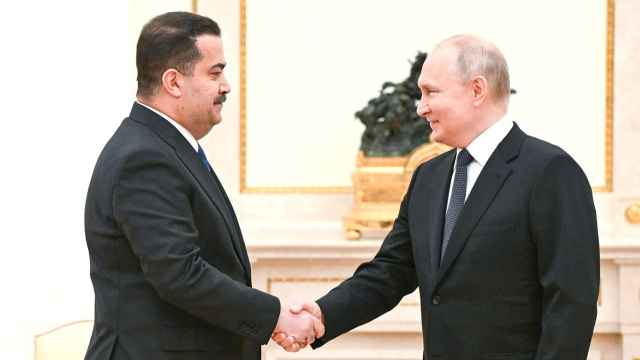Footage of apartment buildings in the Gaza Strip crumbling under Israeli airstrikes and suffering Palestinian civilians has filled Russian political talk shows and newscasts for weeks.
“They are razing Gaza to the ground,” state television anchor and propagandist Vladimir Solovyov said during a recent show. “We [the Russian army] don’t fight like that, not even close.”
“Only the Americans can stop this bloodbath but they are doing exactly the opposite,” anchor Olga Skabeyeva said during a primetime segment on the Rossia 1 channel.
Since the outbreak of the Israel-Hamas conflict, Russian state media, Telegram channels and officials have largely blamed Israel for the latest violence and accused Moscow’s foes in the West of double standards in an attempt to justify the invasion of Ukraine.
Thousands of Ukrainian civilians have been killed and several cities destroyed since Russian forces invaded in February 2022.
Many analysts agree that the conflict in Gaza plays to the Kremlin's advantage by reinforcing anti-U.S. sentiments in the Global South and diverting attention from Russia's actions in Ukraine.
The Kremlin has called the conflict a direct consequence of Western policies in the region that have favored Israel while disregarding the interests of the Palestinian people.
“Russia’s interest in this conflict consists of opposing the U.S.,” Marianna Belenkaya, an Arab affairs expert and journalist for the Kommersant business daily, told The Moscow Times.
Condemning Israel
Following the start of Israel’s military response to the Hamas militant group’s Oct. 7 surprise attack, Russian state media have expressed solidarity with the Palestinian people, condemning Israeli airstrikes on civilian areas in the heavily blockaded Gaza Strip.
“The one who answers barbarity with barbarity is a barbarian,” RT editor-in-chief Margarita Simonyan wrote on Telegram, commenting on Israel’s ongoing bombing of Gaza.
RT has given extensive coverage to Israel’s attack on Gaza as well as pro-Palestine protests around the world.
Some Russian media figures and officials have described Israel’s actions in Gaza as an act of genocide against the Palestinian people.
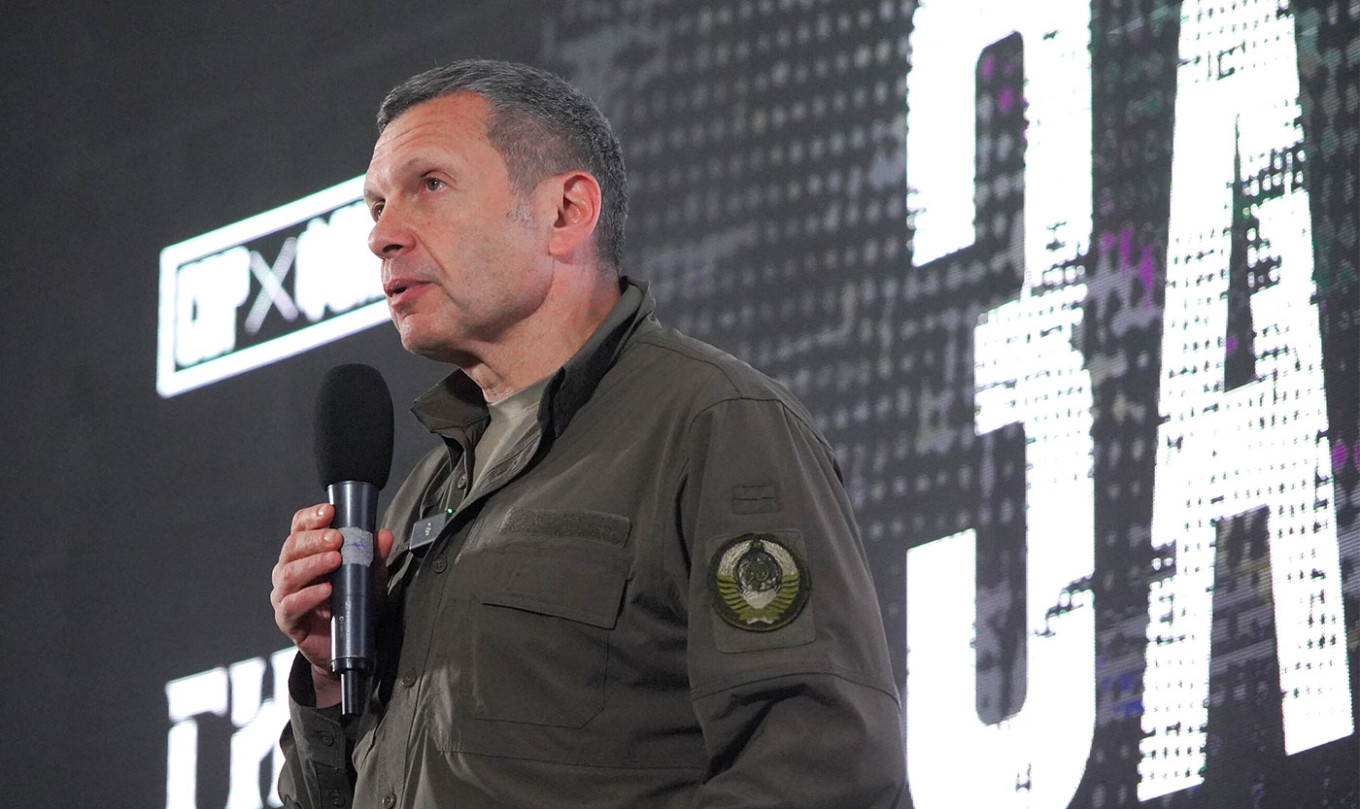
In a post on Telegram, Skabeyeva described Israel’s military operation against Hamas as being directed “against Muslims.”
A number of Russian far-right Telegram channels meanwhile have shown openly anti-Semitic views and supported Hamas’ attack on Israel.
“It’s a pity there is no way to participate,” neo-Nazi group Rusich wrote on its Telegram channel on Oct. 7 as Hamas militants stormed through Gaza’s heavily fortified border with Israel. In another post a few days later, the group compared Israel to ISIS.
Grey Zone, a nationalist channel affiliated with the Wagner mercenary group, defined Hamas’ attack as being aimed at the “demilitarization and denazification of Israel” — echoing Russia’s pretext for invading Ukraine — and called for the mass killing of Jews.
War of fakes
The unprecedented amount of fake information about the conflict circulating online has created fertile ground for Russian propaganda to discredit Israel and its Western allies.
In an article published by the Komsomolskaya Pravda tabloid titled “The Bucha of Israel,” the author blamed the Israeli and Western press for spreading still-unconfirmed information about beheaded children found at the Kfar Aza kibbutz as a pretext for justifying Israel’s brutal military response in Gaza.
The article draws parallels with Bucha, Ukraine, where hundreds of civilians were killed during the Russian occupation in March 2022. Russian officials and propaganda labeled the massacre a “provocation” staged by Kyiv to gain the support of Western public opinion.
In comparing the Kfar Aza massacre to Bucha, Russian propagandists “insinuate that the Western press is spreading fakes like they supposedly did in Ukraine,” independent journalist Maria Borzunova told The Moscow Times.
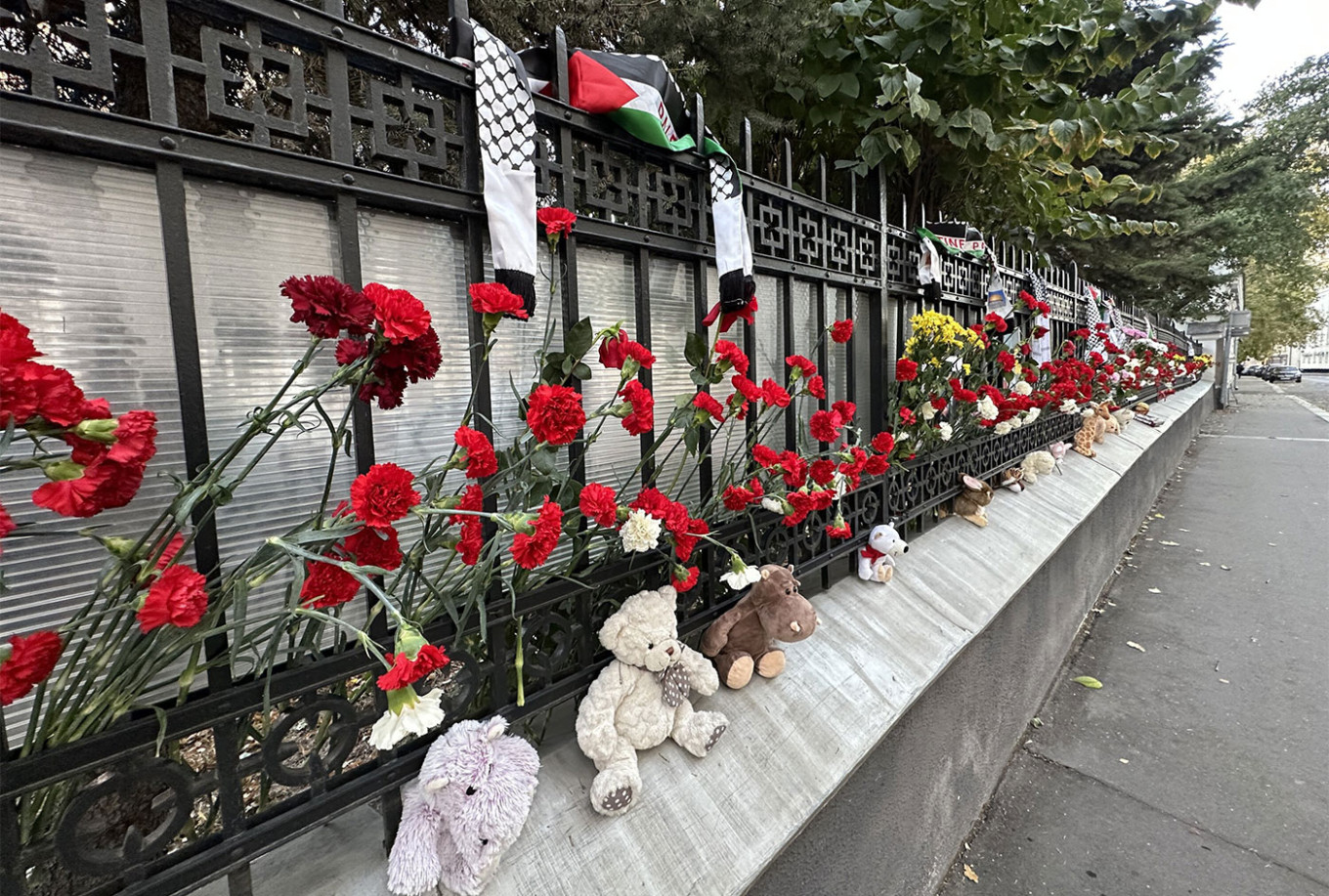
At the start of the latest escalation, Russian propagandists supported unverified claims that Western weapons coming from Ukraine were used by Hamas fighters to attack Israel.
“Weapons given to the neo-Nazi regime in Ukraine are being actively used in Israel,” deputy head of the Security Council Dmitry Medvedev wrote in a Telegram post.
Days later, Putin said he had “no doubt” that weapons for Ukraine had ended up in the Middle East through the black market.
There has been no evidence that Hamas used Western weapons coming from Ukraine in its attack against Israel.
When an Oct. 17 blast at a hospital in Gaza killed hundreds of civilians, some Russian propagandists were swift to support the Palestinian version of events and blame Israel for the tragedy.
Several independent investigations later determined that Israel’s responsibility for the attack is far from certain.
Double standards
The conflict in Gaza has created an ideal environment for Russian propagandists to blame the West for its perceived hypocrisy over the war in Ukraine.
While the U.S. and its allies were swift in condemning Russia’s invasion of its neighbor, they have been hesitant to do the same for Israeli strikes on Gaza, which UN experts say amount to war crimes.
“The West condemns and exaggerates Russia’s actions in Ukraine but minimizes Israel’s crimes in Gaza: the double standards are obvious,” Kirill Semenov, an expert with the Kremlin-aligned Russian International Affairs Council, told The Moscow Times.
By focusing on the brutality of Israel’s bombing of civilian areas in Gaza, pro-Kremlin propagandists have sought to justify the Russian army’s actions in Ukraine, portraying them as comparatively moderate.
“I hope the West will shut up with those statements about the brutality of the Russian army. You want brutality? Look at how the Israeli army is fighting,” Solovyov said in a recent show.
“Now you understand the difference between a war and the special military operation,” Solovyov wrote on Telegram, using the Kremlin’s preferred term for the invasion of Ukraine.
Despite the Kremlin’s official claims that its army is targeting exclusively military targets in Ukraine, several cases of deadly Russian airstrikes on civilian areas have been reported since the start of the invasion.
According to Belenkaya, Russia’s propaganda message is directed at both the domestic Russian audience as well as the pro-Palestinian left in the West.
“It’s important for the Russian state to show it is not doing the most terrible things,” Belenkaya said.
“They are saying: Look, there are other countries at war that kill civilians and the West adopts double standards about it.”
A Message from The Moscow Times:
Dear readers,
We are facing unprecedented challenges. Russia's Prosecutor General's Office has designated The Moscow Times as an "undesirable" organization, criminalizing our work and putting our staff at risk of prosecution. This follows our earlier unjust labeling as a "foreign agent."
These actions are direct attempts to silence independent journalism in Russia. The authorities claim our work "discredits the decisions of the Russian leadership." We see things differently: we strive to provide accurate, unbiased reporting on Russia.
We, the journalists of The Moscow Times, refuse to be silenced. But to continue our work, we need your help.
Your support, no matter how small, makes a world of difference. If you can, please support us monthly starting from just $2. It's quick to set up, and every contribution makes a significant impact.
By supporting The Moscow Times, you're defending open, independent journalism in the face of repression. Thank you for standing with us.
Remind me later.


